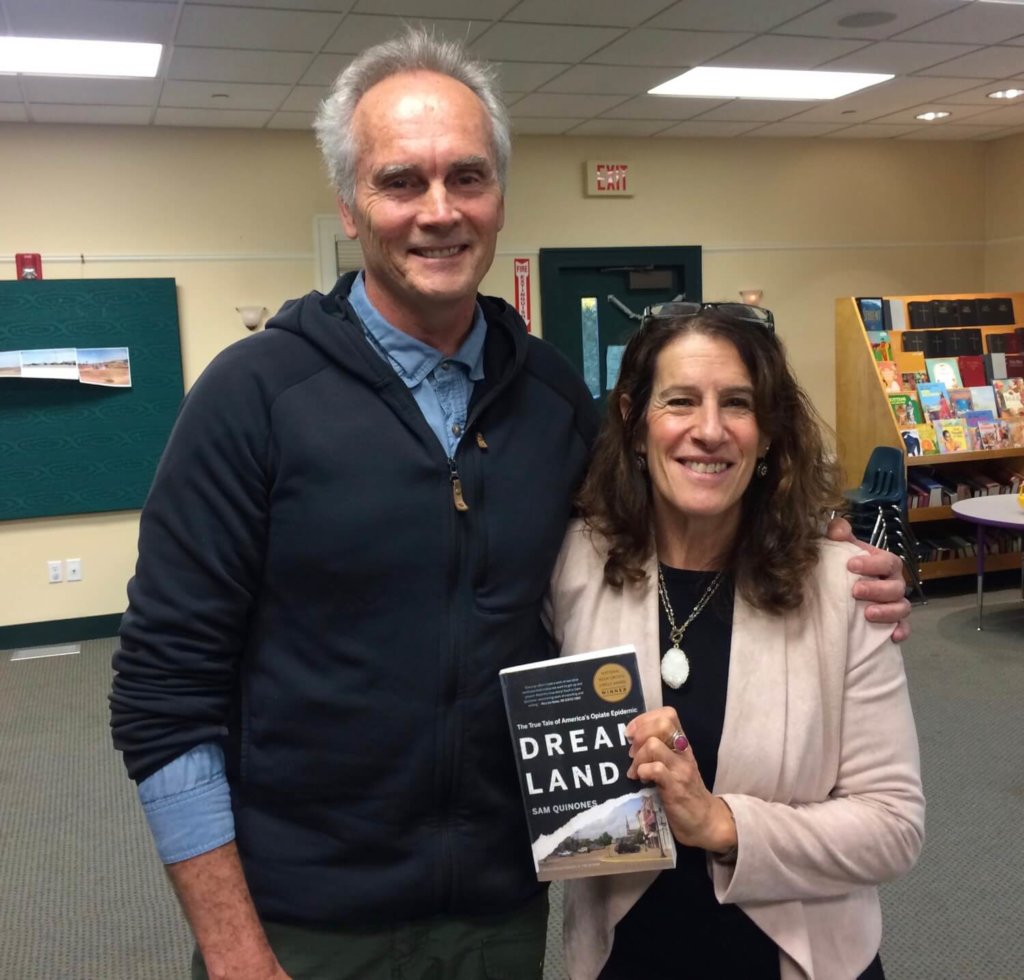Rotary Club learns facts of opioid problem

Members of the Charlotte-Shelburne-Hinesburg Rotary Club met on Wednesday, Nov. 7, to hear Jolinda LaClair, the director of drug prevention policy with the Vermont Agency of Human Services, discuss how Vermont is dealing with the opioid crisis. She focused on the importance of broad community involvement in the campaign to reduce the serious opioid epidemic in the state and around the country.
LaClair has oversight and management of Vermont’s Opioid Coordination Council, which was established by Gov. Scott’s second executive order on Jan. 5, 2017. She said that she brings to her current role a talent for putting together parts of a puzzle. Her work on drug prevention has focused on building an increasingly large and diverse council that focuses on implementing prevention, intervention and enforcement plans. The council’s 22 members represent state government, private business, service providers, law enforcement, first responders and individuals in recovery or with family members who have a substance use disorder. They come from across Vermont.
She spoke highly of CVU Principal Adam Bunting’s role on the council, saying, “Adam Bunting has brought more heart to the challenge of bringing drug prevention services to youth.” Programs at CVU have been broad in their outreach, developing innovative youth and family activities and using the traditional role of the school library as a safe place for finding information about addiction, and much more.
LaClair said, “If every school was like CVU, embracing youth and families, we’d be much stronger in our fight to prevent drug abuse.” She also pointed to the recovery center in Burlington, which provides group therapy for addicted new mothers and programs for children to help them to be more resilient in the face of life challenges like poverty and divorce. “We can’t work in silos,” she said. “The work must be from the ground up, recognizing that many problems begin with prescription pills, with the understanding that relapse is to be expected. It’s also to be understood that the first day of treatment is the first day of recovery.”
“Vermont is ahead of the curve,” she said. There are nine hubs in the state (methadone clinics) with spokes that connect to other services in their area. This concept has proven to be a model of best practice nationally.
She went on to encourage Rotary to support the idea of a consortium of Rotary Clubs working to support engagement in their communities and helping to provide more data. “We don’t have enough data!” And the data, so far, are alarming: In Vermont there were 106 opioid-related deaths in 2017, and 72 so far through September 2018. In another very troubling statistic, over half of the children ages 0 to 5 who are in state custody are there due to opioid abuse issues.
Keith Walsh, president elect of Charlotte-Shelburne-Hinesburg Rotary, thanked guest speaker Jolinda LaClair, director of drug prevention policy with the Vermont Agency of Human Services, for her talk and explained that Dream Land, a book on the subject of addiction, will be presented in her name to the Carpenter Carse Library in Hinesburg, a CSH Rotary tradition for thanking guest speakers.

